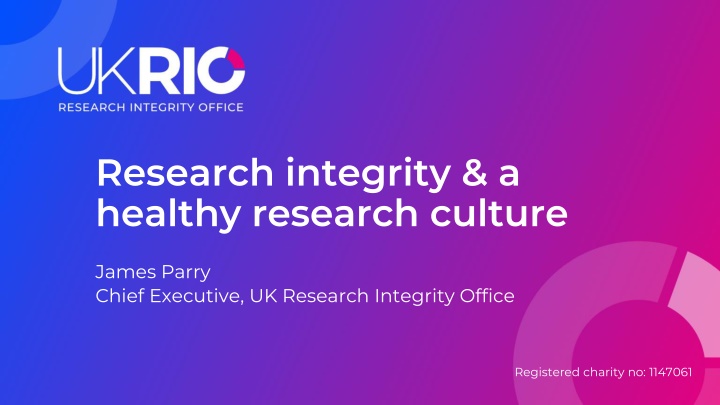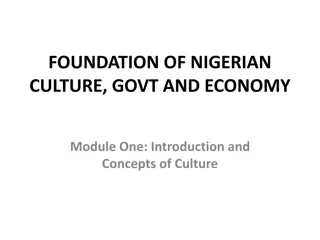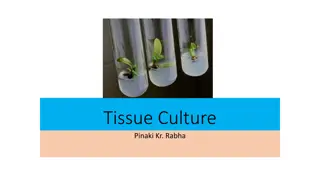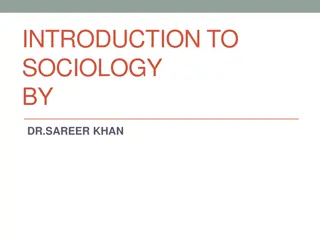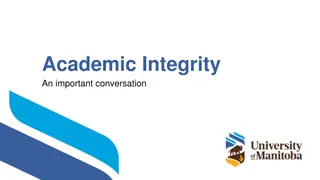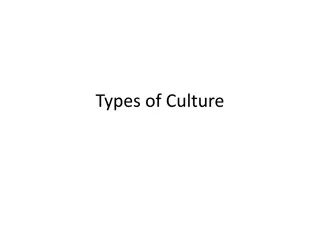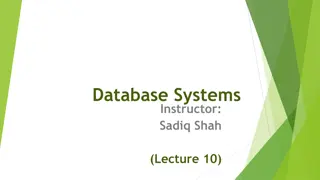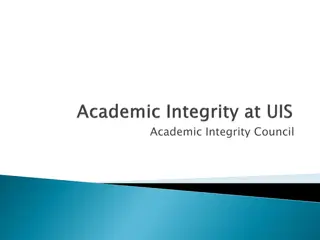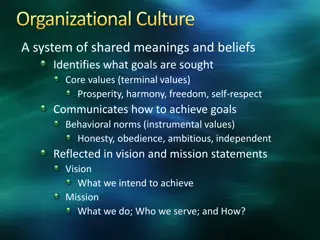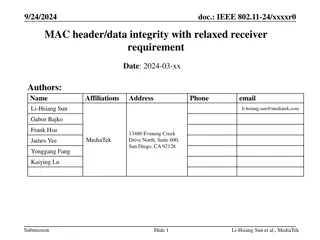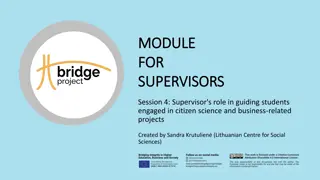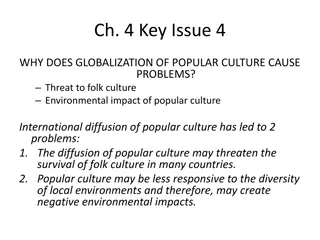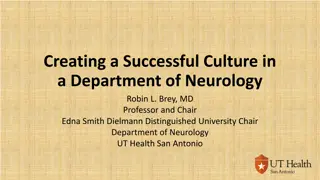Research integrity & a healthy research culture
Foster a strong research culture with James Parry, CEO of UK Research Integrity Office. Learn the importance of research integrity & how to maintain a healthy research environment.
Download Presentation

Please find below an Image/Link to download the presentation.
The content on the website is provided AS IS for your information and personal use only. It may not be sold, licensed, or shared on other websites without obtaining consent from the author.If you encounter any issues during the download, it is possible that the publisher has removed the file from their server.
You are allowed to download the files provided on this website for personal or commercial use, subject to the condition that they are used lawfully. All files are the property of their respective owners.
The content on the website is provided AS IS for your information and personal use only. It may not be sold, licensed, or shared on other websites without obtaining consent from the author.
E N D
Presentation Transcript
Research integrity & a healthy research culture James Parry Chief Executive, UK Research Integrity Office Registered charity no: 1147061
What is research integrity? Research integrity is another term for good research practice. It is about: Ensuring research is high quality and of high ethical standards Trust, reliability, reproducibility, credibility and accountability Identifying, reflecting on, and overcoming challenges and pressures when conducting research This is both for individual researchers what can I do and for the research community what can we all do? Making sure research systems and environments safeguard and enhance good practice often described as research culture. 1
Why does research integrity matter? Integrity, ethics, good practice and basic standards apply to you, your research, your institution and your department It impacts your funding, reputation, confidence and trustworthiness It affects the culture and environments in which we work It is vital for public trust in research 2
What is good practice? While details can vary between disciplines, there are key themes common to all research: Honest Rigorous Transparent Open Caring Respectful Accountable Accurate Collaborative Multidisciplinary Creative Of benefit to society The Culture of Scientific Research in the UK - Nuffield Council on Bioethics (2014) UKRIO graphical representation of research integrity based on the core areas described in the UK Concordat to Support Research Integrity (2019) . 3
What is good practice? These key themes of good research practice are an everyday part of being a researcher. They apply to: All disciplines All career stages All elements of your research: from beginning to end Research integrity is enabling for research, not restrictive, and it is essential to safeguard trust in research But these fundamental standards can be challenging to put in practice What are the barriers you face when trying to achieve good research practice? For guidance, see the UKRIO Code of Practice for Research: https://doi.org/10.37672/UKRIO.2023.04.codeofpractice 4
Why does research culture matter? Systemic ignorance and a dismissive attitude towards research integrity contribute to the overall health of a research environment. When researchers are burdened and under pressure, they may resort to undesirable practices to achieve goals in order to accommodate a publish or perish culture. This pressure can come from multiple sources: How research is funded, monitored, disseminated and assessed Career structures Employers Research group leaders Unhealthy competition 5
What problems can arise? A research environment that fails to prioritise education & training and leadership & support for researchers can expect ignorance, poor compliance of good practice and key research integrity issues to arise: Increased rate of avoidable errors and mistakes Questionable research practices Research misconduct Authorship disputes Ethical concerns Unhealthy research culture UKRIO has a wealth of resources and guidance on our website: https://ukrio.org/resources/?res_topic=ALL&res_tag=ALL&res_srch= 6
How we help you UKRIO is a registered charity, supported by over 110 institutions, and has provided its unique, independent and expert support since 2006: Education guidance and support through publications, training and our comprehensive events programme Sharing best practice clear and honest development for the research community through facilitated discussions about important issues; informing national and international initiatives; improving research culture Expert guidance confidential and expert advice and guidance for institutions, individual researchers and the public 7
